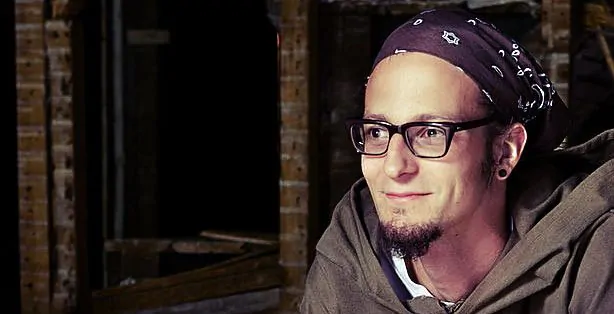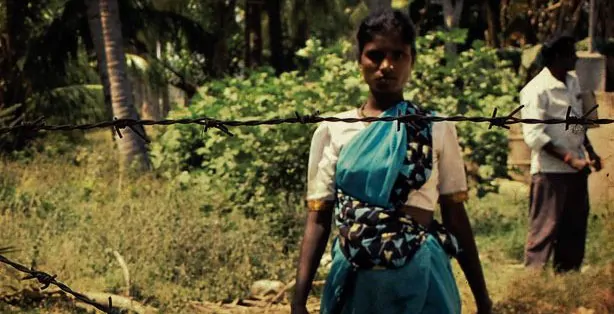
Shane Claiborne is the co-author of Becoming the Answer to Our Prayers: Prayer for Ordinary Radicals and author of New Monasticism: What it Has to Say to Today’s Church. He uses his knowledge of religion and politics to build a basis on social justice and helping those in need. Here, the spiritually and politically minded speaker talks to us about the economy, helping the poor and how the apocalypse-type language going on now can be seen as a good thing.
We’re all feeling the effects of a bad economy right now. What’s your take on it, and how have you seen it affect people?
About a year and a half ago, we had a big fire here in our neighborhood and it was a difficult time for our neighborhood. The Red Cross set up a shelter nearby and they came by the house and they said, “The wildest thing happened”—nobody ended up staying in the shelter ‘cause everybody in the neighborhood opened their homes up to each other.
There’s an incredible, inherent resourcefulness and creativity of survival that a lot of poor folks get. Certainly it’s not to romanticize the poverty in the inner, but a lot of people live in community not because they choose intentional community but because that’s how they’ve had to survive. I think we have a lot to learn from that.
The other thing is, I was on an airplane the other day and this guy got a little hellfire on me and he was like, “This is the apocalypse! This is the end times!” And I think he was onto something, though, that folks are asking a lot of really good questions right now. He may have read too many Lehane books, but I think that apocalypse comes from the same brood as revelation—it means to reveal or unveil, ripping away the veil so you can see what lies underneath everything. In that sense, I think these are very revealing times where folks are asking questions like, “Does God’s dream look like Wall Street?” Can the world really afford the patterns we’re living in?
The great thing is that Scripture says we’re not to conform to those patterns, but to be transformed by our mind and living in ways that confound those patterns. I think it’s an exciting time right now for the Church to shine and the Church has shined pretty well in very difficult situations. If you want to find a church that’s alive, go look in places where the world is suffering and struggling. Jonathan [Wilson-Hartgrove] and I and a group of other communicators were together last week and one of the things that was said at that gathering was if you read the book of Revelation, it talks in ways that are so relevant. Talk about relevant, read about the fall of Babylon. “Oh, here’s Babylon, she’s fallen, and the merchants stand back and they weep and they wail and they said, ‘Oh, fallen is this great Babylon.’” And there’s another response, though, which is that the angels rejoice and the big question is, “Will we be weeping with the merchants or rejoicing with the angels?”
I don’t think it’s like, “This is God looking down and smiting or shooting lightning bolts.” It’s that we’re living in the patterns that are unsustainable and destructive and inevitably that is bound to collapse. When CEOs are making 500 times that of their workers, when the U.S. is consuming half the world’s resources with less than six percent the world’s population—that should cause us to ask, “What does God’s dream look like in light of what we’re seeing?”
We have the poor all around us, and we have a lot of opportunities to connect with them, but so many people fear that first connection—taking that first step is intimidating. How should we take that first step?
Jonathan and I’s story is that we both had to leave some of where we came from in order to grow closer to people who were suffering. That’s not necessarily true of everyone—for some people it means remaining in the neighborhoods they came from if they came from tough neighborhoods, or returning to them after they’ve gone to college and come back to their neighborhood to be a lawyer or a teacher. Those are incredibly heroic callings and vocations.
But for us, I think Jonathan and I suffered from many of the patterns of our culture that separate us from the poor or the marginalized or people who look different from us. That’s where I think Jesus is saying to the Church, “Go into the world.” Jesus is not saying to the poor, “Come find the Church,” but He’s saying to us, “Get out—go into the world, go into the prison. Find me in prison, find me where I’m hungry.” In that, there’s a call to community, where we’ll do that together, where we’re not just lone rangers, but we’ll go on this journey together to move closer to the suffering in our world.
The beautiful thing, too, is that this call is something that brings us to life. It’s not just bringing life to the poor, but it’s bringing life to those of us who’ve locked ourselves into this dream or this phantom of independence and of not needing others. The prophet Isaiah says, “When we spend ourselves on behalf of the poor, our healing comes and our light begins to shine.” This is what we’re made for: We’re made to live for something bigger than ourselves, we’re made to give ourselves for others. When people do that, whether they’re the doctors here in Philly who run a clinic around the corner or the landscapers who are coming and creating green space in poor neighborhoods, there are people who are using their gifts in ways that are building the Kingdom and embodying good news to the poor.
And so those calls, the call to community, for people in the suburbs who are going, “Hey, crazy idea, we’re gonna carpool” or “We’re gonna have the one family on our cul-de-sac who has the washer and dryer that we’re gonna use or the lawnmower that we all use.” Not only are those sensible ways of living but they’re also things that create community, interdependence, the sort of life that we’re made for together—and break the patterns of unsustainability and also land us in a place where we’re the wealthiest country in the world and also one of the most lonely, medicated and depressed people in the world.





















